How Empathy Alters the Way We Perceive Injustice
10 December 2024
Empathy is one of those human qualities that can either elevate us or tear us apart. It’s complex yet simple; innate yet learned. Have you ever found yourself getting emotional in a movie where the protagonist suffers from an injustice? Or perhaps you’ve felt a pang of guilt when you saw someone being mistreated, even though you weren’t directly involved? That’s empathy at play, and believe it or not, it can significantly alter the way you perceive injustice.
But how does empathy work? And why does it change the way we see and respond to unfairness in the world? Let’s take a deep dive into how empathy shapes our perception of injustice, and why it holds so much power over our behavior and decisions.
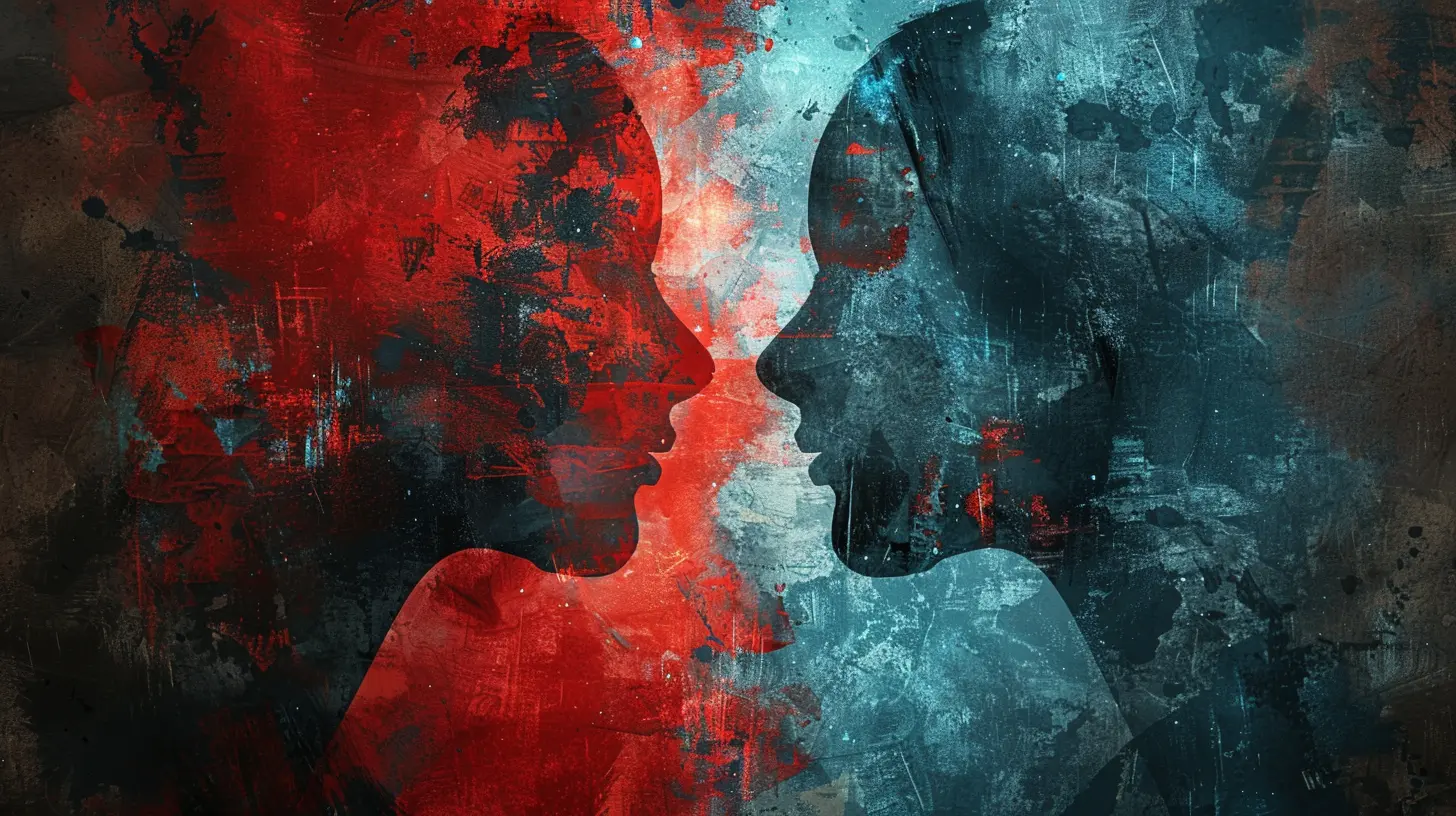
What is Empathy?
Before we get into the nitty-gritty of how empathy affects our perception of injustice, let's cover the basics: what exactly is empathy?Empathy is often defined as the ability to understand and share the feelings of another person. There are two main types:
1. Cognitive empathy: This is your ability to understand someone else’s perspective. You can intellectually grasp what they’re going through, even if you don’t necessarily feel it yourself.
2. Emotional empathy: This is when you actually feel what the other person is feeling. Their joy becomes your joy, and their pain, your pain.
While both types of empathy are powerful, emotional empathy tends to have a more direct impact on how we perceive situations, especially when it comes to injustice. It’s one thing to understand that someone is suffering; it’s another to feel that suffering yourself.
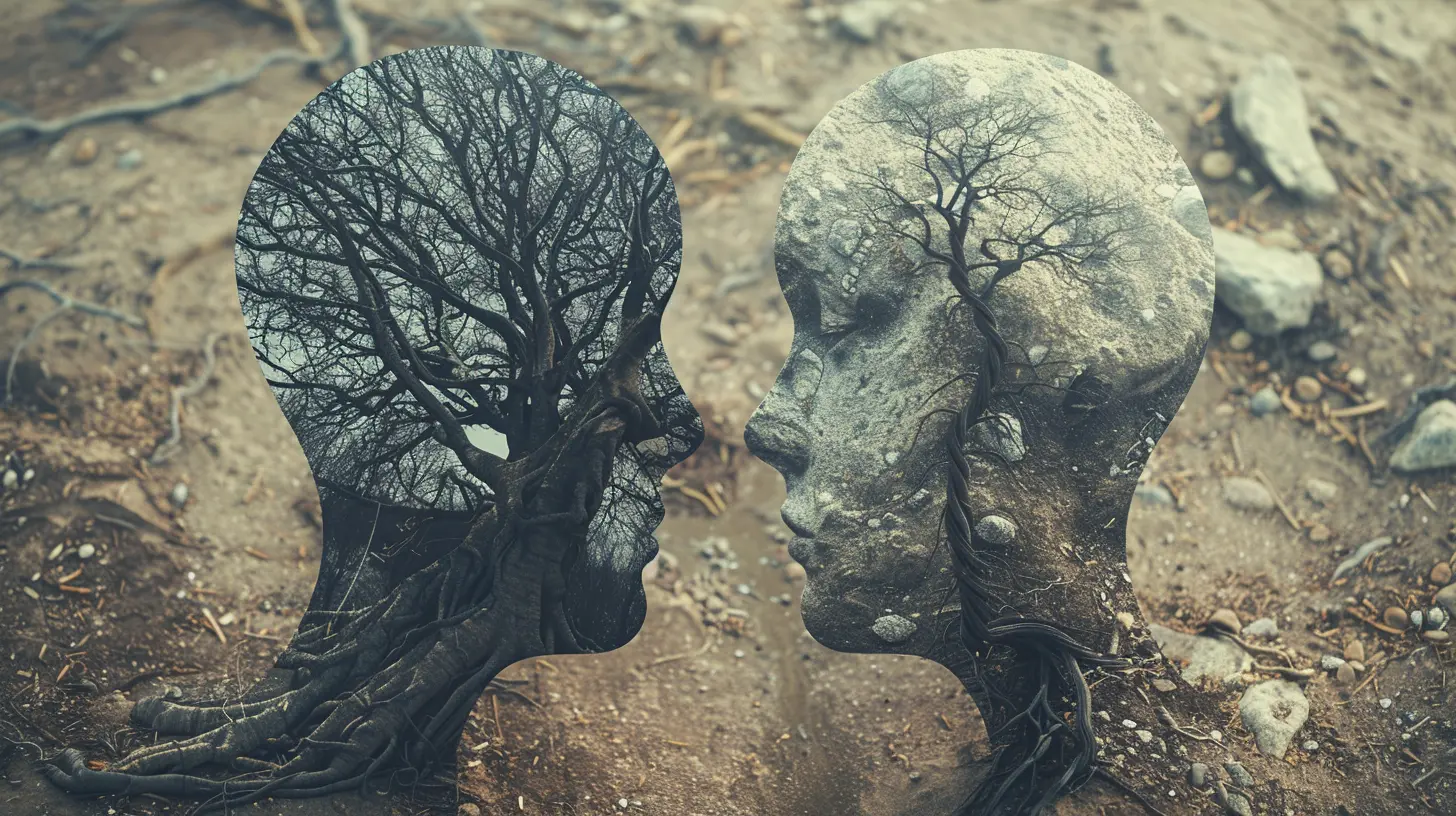
The Connection Between Empathy and Injustice
Injustice is, by definition, a violation of fairness. It can be something small, like cutting in line, or something much bigger, like systemic discrimination. How we react to injustice often depends on our ability to empathize with those who are affected by it.Empathy as a Lens for Viewing Injustice
Imagine you’re watching a news segment about a local protest. If you’re emotionally detached from the situation, you might see it as just another news story. However, if you’re able to empathize with the people involved — if you can feel their frustration, their anger, and their pain — then that protest becomes much more than a headline. It becomes a personal cause, something that stirs you into action.Empathy acts like a lens through which we view the world. Without it, we might see injustice as something distant, abstract, or even irrelevant to our own lives. With empathy, however, injustice becomes vivid and personal. It stirs something deep within us, prompting us to act or at the very least, to care.
The Role of Emotional Empathy in Perceiving Injustice
Emotional empathy, in particular, plays a huge role in how we perceive injustices around us. When we emotionally connect with someone who’s been wronged, we’re more likely to feel that the injustice is severe or unacceptable. We may even feel a moral obligation to right the wrong.For example, consider a case of workplace bullying. If you’ve been bullied in the past or have witnessed someone close to you being bullied, emotional empathy can kick in. You’re likely to feel the victim’s pain more acutely, and this may alter your perception of the situation. What might seem like a minor conflict to someone else could feel like a grave injustice to you.
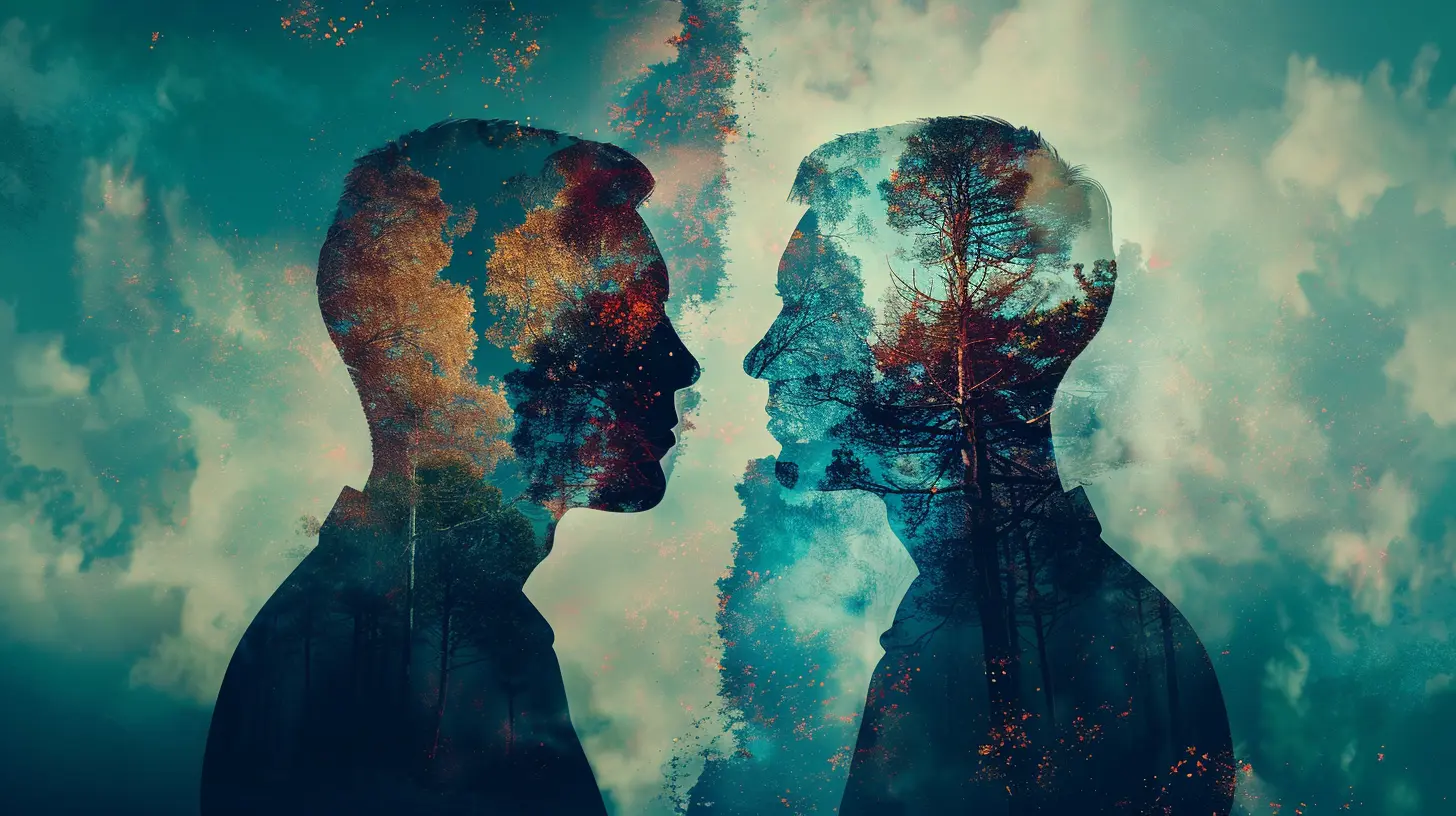
The Neuroscience of Empathy: Why We Feel Others' Pain
Interestingly, empathy isn’t just a psychological phenomenon; it’s also neurological. Our brains are wired to empathize with others. Studies have shown that when we observe someone else experiencing pain, the same areas of our brain are activated as if we were experiencing the pain ourselves. These areas include the anterior insula and the anterior cingulate cortex, both of which are involved in processing emotions.This mirroring effect is why we might wince when we see someone else get hurt, or why we feel a rush of warmth when we witness someone receiving good news. Our brains are literally wired to share in the experiences of others, whether they’re positive or negative.
But here’s where it gets interesting: not everyone experiences empathy in the same way. Some people are more empathetic than others, and this variation can affect how we perceive injustice.
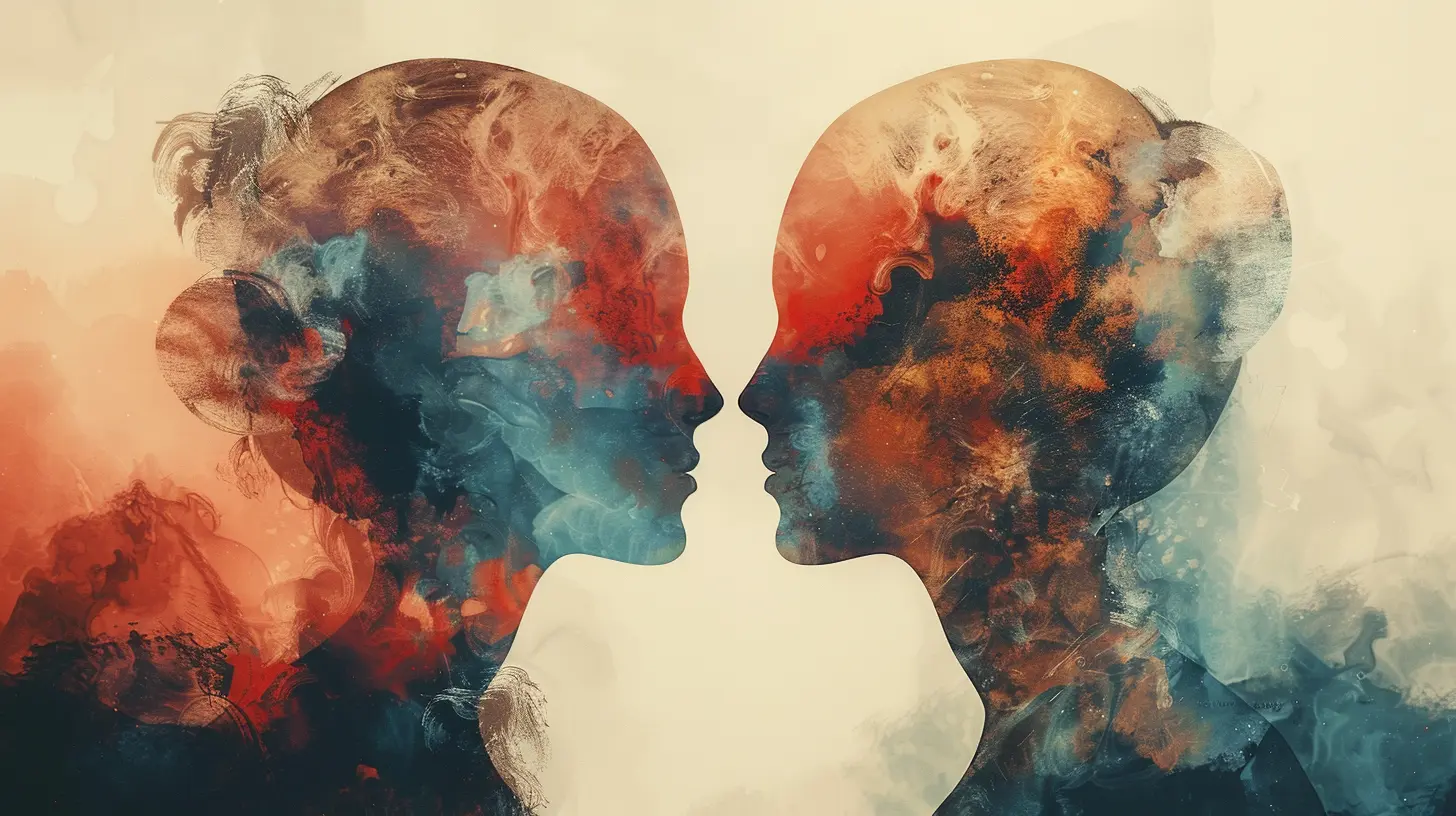
Factors That Influence Empathy
Several factors can influence how empathetic we are, and in turn, how we perceive injustice. Let’s explore some of the major ones:1. Personal Experience
Personal experience plays a huge role in shaping empathy. If you’ve experienced injustice firsthand, you’re more likely to empathize with others who are going through something similar. For example, someone who has been the victim of racial discrimination may have a heightened sensitivity to similar injustices happening to others.On the other hand, if you’ve never experienced a particular form of injustice, it might be harder for you to empathize with those who have. This doesn’t mean you can’t feel empathy, but it may not come as naturally.
2. Cultural Background
Our cultural background also plays a big role in shaping our levels of empathy. In some cultures, empathy is highly valued and taught from a young age. In others, emotional detachment or stoicism may be emphasized, which can make it harder for people to connect emotionally with others.Cultural norms can also affect how we perceive certain injustices. What might be seen as a grave injustice in one culture could be considered normal or acceptable in another. Empathy helps bridge this gap by allowing us to see the situation from the other person’s perspective, even if it’s different from our own.
3. Social Conditioning
Social conditioning can either enhance or suppress our ability to empathize. If we’re constantly exposed to messages that dehumanize certain groups of people or trivialize their suffering, we’re less likely to feel empathy for them when they experience injustice. On the flip side, if we’re surrounded by messages that encourage compassion and understanding, empathy becomes second nature.4. Emotional Fatigue
It’s also possible to become emotionally fatigued by too much empathy. When we’re constantly bombarded with stories of suffering and injustice, our capacity to empathize can become overwhelmed. This is sometimes referred to as “compassion fatigue,” and it can make us numb to injustice, even when it’s happening right in front of us.How Empathy Drives Action Against Injustice
Now that we’ve explored how empathy affects our perception of injustice, let’s talk about how it drives us to take action. Feeling empathy for someone who’s been wronged isn’t just an emotional experience; it’s also a call to action.1. Motivation to Help
When we empathize with someone who’s been treated unfairly, we often feel a strong desire to help them, whether that means offering emotional support, advocating for their rights, or even intervening directly. This phenomenon is known as altruistic empathy — the kind of empathy that motivates us to help others, even at a cost to ourselves.For example, when you see someone being unfairly treated at work, your empathy might compel you to speak up, even if it means risking your own reputation or job security. Without empathy, you may not feel the need to get involved, especially if the injustice doesn’t directly affect you.
2. Changing Social Norms
Empathy doesn’t just motivate individuals to take action; it can also drive broader social change. Many social movements throughout history have been fueled by empathy — from the civil rights movement to the fight for LGBTQ+ rights. When enough people empathize with a marginalized group, social norms begin to shift, and injustices that were once tolerated become intolerable.Think about it: Would the abolition of slavery or the fight for women’s suffrage have gained as much momentum without empathy? Probably not. Empathy helps us see the humanity in others, even when they’re different from us, and that’s a powerful force for change.
3. Advocating for Justice
Empathy also plays a crucial role in advocacy. Whether you’re fighting for legal reforms, social justice, or simply standing up for a friend who’s been mistreated, empathy gives you the emotional fuel to keep going, even when the odds are stacked against you. It’s what enables activists, lawyers, and everyday citizens to continue fighting for justice, even when the road ahead is long and difficult.
The Dark Side of Empathy: When It Distorts Our Perception
While empathy is generally seen as a positive trait, it’s important to note that it can also distort our perception of injustice. Sometimes, our empathy can be selective or biased, leading us to care more about certain people or causes than others.1. Selective Empathy
Selective empathy occurs when we only empathize with people who are similar to us or who we perceive as deserving of our empathy. For example, we might feel deep empathy for someone who shares our cultural background but remain indifferent to someone from a different culture. This can lead to a skewed perception of injustice, where we see the suffering of one group as more significant than the suffering of another.2. Empathy Overload
As mentioned earlier, too much empathy can lead to emotional fatigue. When we’re constantly empathizing with others, especially in a world filled with so much injustice, it can become overwhelming. This can lead to a phenomenon known as empathy overload, where we shut down emotionally and become numb to injustice.Conclusion: Empathy as a Tool for Justice
Empathy is a powerful force that shapes the way we perceive injustice. It allows us to connect emotionally with others, see the world from their perspective, and feel compelled to take action. However, it’s important to be mindful of the ways in which empathy can be selective or overwhelming, as these can distort our perception of fairness and justice.Ultimately, empathy is a double-edged sword. It can open our eyes to injustices we might otherwise ignore, but it can also cloud our judgment if we’re not careful. By cultivating mindfulness alongside empathy, we can use this powerful emotion as a tool for creating a more just and compassionate world.
all images in this post were generated using AI tools
Category:
EmpathyAuthor:

Alexandra Butler
Discussion
rate this article
14 comments
Kova Clayton
Empathy enhances our understanding of injustice, prompting deeper connections and a stronger drive for change.
February 6, 2025 at 3:34 AM

Alexandra Butler
Thank you for your insightful comment! I agree—empathy not only deepens our understanding of injustice but also motivates us to take meaningful action.
Caelestis Lewis
Empathy is the bridge that transforms our understanding of injustice. By stepping into others' shoes, we cultivate compassion and foster a more just world. Let’s embrace empathy as a powerful tool to reshape perceptions, inspire action, and create meaningful connections that drive positive change.
February 1, 2025 at 4:40 AM

Alexandra Butler
Thank you for your insightful comment! I completely agree—empathy is indeed a vital force for understanding and addressing injustice. It empowers us to connect deeper and inspire meaningful change.
Sophia McMichael
This article beautifully highlights the transformative power of empathy in shaping our understanding of injustice. By fostering deeper connections with others, we not only enhance our awareness but also inspire positive change in our communities. Thank you for shedding light on such an important aspect of human experience!
January 28, 2025 at 4:31 PM

Alexandra Butler
Thank you for your thoughtful comment! I'm glad you found the article impactful—it’s inspiring to see how empathy can drive meaningful change.
Kristen Ward
Empathy: the superhero power that makes us see injustice in HD! One moment you’re binge-watching your favorite show, and the next, you’re tearing up over a cat who didn’t get invited to the party. Who knew compassion came with a side of drama?
January 22, 2025 at 3:50 PM

Alexandra Butler
Absolutely! Empathy sharpens our awareness and connects us to others' struggles, transforming our perceptions of injustice into powerful, relatable narratives. It’s a profound force that inspires action and understanding.
Alana Frye
Empathy: the ultimate game changer!
January 19, 2025 at 4:42 PM

Alexandra Butler
Absolutely! Empathy allows us to deeply understand others' experiences, transforming our perception of injustice and driving meaningful change. Thank you for your insight!
Susan Baker
Empathy is a transformative force in our understanding of injustice. By deeply connecting with others' experiences, we not only challenge our perceptions but also foster meaningful change in society.
January 15, 2025 at 5:36 PM

Alexandra Butler
Thank you for your insightful comment! I completely agree; empathy indeed opens the door to deeper understanding and meaningful societal change.
Sydney McKeehan
This article effectively illuminates the intricate relationship between empathy and perceptions of injustice. However, it overlooks how individual differences in emotional sensitivity can lead to varying interpretations of fairness. Understanding this nuance could enhance our grasp of empathy's role in social justice discourse.
January 11, 2025 at 5:20 PM

Alexandra Butler
Thank you for your insightful feedback! You're right—individual differences in emotional sensitivity play a crucial role in shaping perceptions of fairness. I'll consider this nuance for future discussions on empathy and social justice.
Beatrix McGonagle
Empathy truly transforms our understanding of injustice, fostering compassion and connection. This insightful article beautifully highlights its profound impact on human relationships.
January 6, 2025 at 5:31 AM

Alexandra Butler
Thank you for your kind words! I'm glad you found the article insightful and that it resonated with the importance of empathy in understanding injustice.
Brianna McCloud
Great insights on empathy's power! Understanding how it shapes our perception of injustice can truly foster compassion and drive positive change in society.
December 30, 2024 at 4:12 PM

Alexandra Butler
Thank you! I’m glad you found the insights on empathy impactful. It’s a vital tool for fostering understanding and driving meaningful change.
Thor Clarke
“Empathy: the superhero cape we all wear! It transforms our injustice radar into a powerful force for good!”
December 27, 2024 at 5:41 AM

Alexandra Butler
Absolutely! Empathy equips us to recognize and address injustices, turning awareness into meaningful action.
Berenice Gates
What a thought-provoking read! It’s fascinating how empathy shapes our perception of injustice. Understanding others’ feelings really does create a deeper connection and drives us to advocate for a more compassionate world. Keep the insightful articles coming!
December 23, 2024 at 5:47 AM

Alexandra Butler
Thank you for your thoughtful comment! I’m glad you found the article insightful—empathy truly is a powerful force for change. Stay tuned for more!
Elias Elliott
Empathy is a powerful lens through which we view injustice. By understanding others' experiences, we cultivate compassion and broaden our perspective, prompting a deeper commitment to addressing inequities and fostering a more just society for all.
December 12, 2024 at 4:18 PM

Alexandra Butler
Thank you for your insightful comment! Empathy indeed transforms our understanding of injustice, making us more compassionate and committed to fostering equity. It’s essential for building a just society.
Caleb McKay
Empathy transforms our view of injustice, reminding us that understanding can spark meaningful change! 🌟
December 10, 2024 at 5:59 PM

Alexandra Butler
Thank you for your insightful comment! I completely agree—empathy is a powerful catalyst for understanding and change.
Thomas McNeal
Ah, empathy—it's like wearing another person's shoes, but sometimes those shoes are two sizes too small and have a hole in the toe! It's amazing how a little understanding can turn our blind rants about injustice into heartfelt conversations. Just watch out for the blisters!
December 10, 2024 at 4:00 AM

Alexandra Butler
Absolutely! Empathy truly reshapes our perspective on injustice, transforming frustration into meaningful dialogue, even if it can be a bit uncomfortable at times. Thank you for your insightful comment!
MORE POSTS
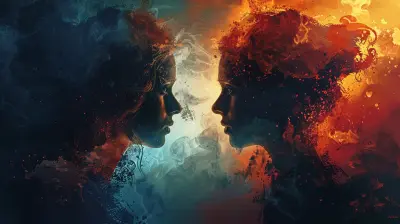
How to Recognize and Address Emotional Unavailability

Encouraging Independence in Toddlers

Understanding Attachment Theory in Childhood

The Role of Self-Esteem in Relationship Dynamics

Helping Children Navigate Peer Pressure and Social Dynamics

How Creative Expression Can Heal Both Mind and Body

Healing from Perfectionism: Embracing Imperfection

Overcoming Self-Sabotage: The Role of Self-Care in Breaking Harmful Cycles

Navigating Schizophrenia in the Workplace: A Guide for Employers